Playlist:
1957 BBC Radio introduction w. Boscastle Breakdown 1:00
Padstow Wassail Charlie Bate 2:48
Somerset Gloucestershire Wassail The Kingston Trio 1:48
Here We Come A-Wassailing (instrumental) The Night Heron Consort 2:13
Apple Tree Wassail The Watersons 2:12
If you received my Bill’s Midwinter Music series last year or got my Sampler CDs before I started this series you probably already guessed that there would be a songs-of-the-day set of wassail songs again this year. I am fascinated by the ancient luck-visit traditions that are found throughout Europe, and in particular the wassailing customs and songs that survived in England’s rural areas, surviving the years of Puritan rule and continuing to be sung in their proper context until recent times.
I’ll only give you a very abbreviated version of that history this time. You can hear more wassail songs and learn more about their history from my previous postings here and here, and this one includes a detailed essay on the subject.
Very briefly, our very ancient ancestors would call upon their relatives and neighbours in the harsh midwinter, perhaps partly as a wellness check but also to visit and wish them a safe and prosperous coming year after winter ends. In return, the families being visited would treat their visitors to hospitality. Over time the formats for these annual visits became ritualized, with different formats in different regions and communities. We know that this type of activity is very ancient because the same general style of midwinter luck-visiting customs occurred throughout Europe, and in fact everywhere in the world in the temperate climate zones, and everywhere there are varieties in the same styles of specific local rituals.
In England the custom is often known as wassailing. Very briefly, the word “wassail” is old English. Literally it means “be whole” but it was used as a drinking toast – “Stay healthy!” The variations on the wassailing custom often involve a wassail bowl brought by the visitors. In some variants it is brought filled with an alcoholic beverage that is also called wassail, to be shared with the hosts, or it is brought empty to be filled by the household being visited to then be shared by all. Many recipes for the wassail beverage that can be found online.
This set opens with a brief introduction from an historic live 1957 Christmas Day broadcast by BBC Radio. It was an ambitious project and quite a technical achievement – the first time that BBC attempted to do a live show using performers located in six different cities, and therefore carefully structured and highly scripted. It was broadcast during the time when a folk music revival was building up in both North America and in Great Britain. The radio was hosted by Alan Lomax in London, and the West Country location was in Plymouth.
I have the album but the whole show is now available online in the form of a YouTube playlist. To keep up the pace, mostly it had only brief snippets of songs from the various performers, and segments were bridged with overlapping fade-out and fade-ins. It seems dated now although still quite entertaining. I do recommend listening to it both as a window into folk music history and for the information it contains in the introductions.
What I have included here is the very last part of a segment with songs from each of the six broadcast locations. Then the show’s overall host, Alan Lomax in London passes the baton to the West Country folk music collector Peter Kennedy who introduces Charlie Bate, a folk music fixture in remote western end of the country in Cornwall. After a brief rendition of the step-dance tune Boscastle Breakdown given to illustrate that wassailing included tunes as well as songs, Charlie introduces …
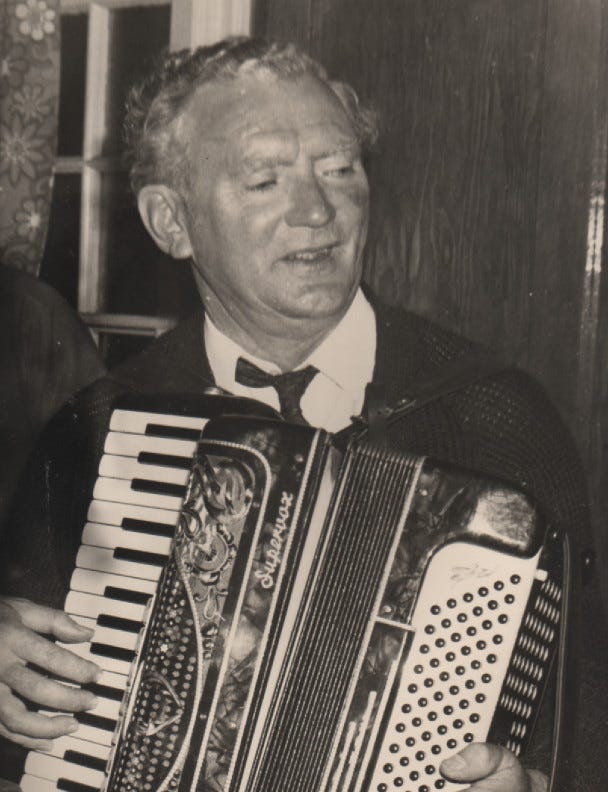
… the Padstow Wassail, a traditional song from that small fishing village out on the farthest reaches of the Cornwall Peninsula. Here is where I do a switch. Instead of giving you the abbreviated two verses that were on the radio broadcast I have substituted a recording of Charlie singing of the whole song that Peter Kennedy had recorded a year earlier which was on Peter’s 1956 cassette West Country Wassailers.
Somerset Gloucestershire Wassail is from The Kingston Trio’s 1960 Christmas album the last month of the year. [Side note: They sang the title song with the call lines that Alan Lomax had just recorded from Vera Ward Hall in 1959. Lomax brought the song to them and they were the first ones to record it on a commercial record.] At the time, the Kingston Trio had only been recording since 1958 and they were the hottest thing in pop music. All of their previous five studio albums had all risen to #1 on the Billboard pop charts.
Yet this Christmas album struggled to make it to make it to #11 in that year and Columbia Records discontinued it before the following Christmas season. The company did not want a dud like that further harming the Kingston Trio’s reputation and a failed Christmas album was unheard of from pop stars. They did not release it again until 1991, well after the folk revival had run its course. I just discovered that tidbit of information and it has now led me into spending too much time trying to figure out why that happened.
One possibility is that there is a standard formula for successful Christmas albums whatever their particular musical genre: The album includes mostly covers of the well-known Christmas favourites , usually with rich, lush accompaniment but sung in the performer’s distinctive style. There are usually one or two new songs that they hope will be the next lasting Christmas super-hit like White Christmas or Rudolf the Red-nosed Reindeer. If a performer were to hit the jackpot with one like that they could live off the royalties for the rest of their lives. But even if that does not happen their new renditions of the Christmas classics together with their current celebrity status almost guarantees that the album itself will be a success. The Kingston Trio did not follow that formula.
All of the songs on the Christmas album were new, at least for the general public – not a Christmas classic to be heard. Not even Silent Night! Some of the songs themselves, like the title song, We Wish You a Merry Christmas, and this wassail song have gone on to become part of our familiar Christmas repertoire. In fact, the Kingston Trio’s inclusion of them on their album may have helped that by bringing them to the attention of other performers to sing. But their own renditions of them did not make a lasting impact and are usually not heard anymore. I’ll need to think about all of this further because it is an interesting phenomenon.
Somerset Gloucestershire Wassail is the song that they and Columbia chose to release as the A side of the 45rpm single that was released in parallel with the album (with Goodnight my Baby, written by Kingston Trio member nick Reynolds, as its B side.) That was common practice at the time and it was sales of the singles that drove songs to the top of Billboard’s Top 40 pop chart. That single wasn’t a success either. The awkward name is because it isn’t rendition of a particular old wassail song but a mash-up of lyrics and melodies from various wassail songs that had been collected in that region of England. Its authorship is credited to Dave Guard, another of the Kingston Trio members at the time, and Wilbur Schwandt whose biggest hit was when The Mamas & The Papas covered his Dream a Little Dream for Me in 1968.
While wondering why this album failed something occurred to me that I had never thought about before. I’ll need to give this a lot more consideration and research but it seems to me that wassail songs were not part of the music of my childhood. I have checked a few sources and cannot find a North American recording of a wassail song before this version of Somerset Gloucestershire Wassail by any of the big-name Christmas recording artists. Even the very-folky Weavers didn’t have a wassail song on their 1951 We Wish You a Merry Christmas album.
I don’t doubt that there were wassail songs recorded on Christmas albums by some of the true folkies earlier in the folk revival than 1960, but I haven’t found any yet and they would probably not have come to the attention of the general public. I’ll dig into this further but for now I don’t have time because I have more of these daily sets to put together and write about and I don’t have time for that huge rabbit hole right now. (Kingsley: take warning. I’ll be calling you about this.)
To give your ears a rest before some upcoming gritty authenticity, next is an easygoing instrumental version of Here We Come A-Wassailing, performed by The Night Heron Consort, based in Hillsborough, New Hampshire. I got it from the above compilation album. The arrangement is by Steve Schuch, and the consort is comprised of Steve (violin and guitar); David Coffin (Irish whistles, concertina and bombard); David Surette (bouzouki, mandolin and guitar); and Kent Allyn (fretless bass and keyboards.)
This song, sometimes just called Wassail Song, is one of the most popular wassail songs today. It also may also have been widely sung in England since many variants have been collected. The roots of the song may be as early as the 16th century. The fact that variants have been collected in many places in England woulod usually be an indicator of age, but in this case it could be due to the Victorian era Keep Christmas movement. They actively promoted what they considered to be a revival of an ancient practice of Christmas caroling in which Christmas carols were thought to have been sung from house-to-house in medieval times. Even in recent times the word wassailing has been thought by some people to be a synonym for carolling.
Certainly the phrase “God bless you and send you a happy new year” in the chorus of this song is not typical of most old wassails. Almost all of them offer wishes for good luck not blessings, and do not mention God. (Wassail variants of God Rest Ye Merry, Gentlemen is another exception, but that is an urban medieval song (believed to have originated from the London night-watchmen, not as a rural wassailing song.)
Keep Christmas proponents were aware of the many wassail songs and wassail customs that were common in rural areas in the early 19th century. Instead of thinking of them as being a possible remnant from pre-Christian times they interpreted that a popular medieval custom of fervently-Christian medieval people going from house to house singing religious songs in honour of Christ’s birth had been warped into a faux-pagan custom during the dark 18th century days of rowdy and sacrilegious behaviour at Christmas time. After all, the wassailing custom involved drinking a lot of alcohol.
Thus, they interpreted the wassail customs as proof that there had been caroling in medieval times and promoted a return to that “authentic” old practice as part of keeping Christmas. It is rather circular logic, and as far as I know there is no other evidence that caroling with nativity songs ever took place in medieval times. But that is why we our common images of Christmas carolers has them dressed as proper upper middle-class English men and women rather than as medieval peasants.
Based on the internal evidence of its lyrics Here We Come A-Wassailing would have been collected later, after the Keep Christmas movement had achieved its objective of transforming how Christmas is celebrated. By the latter 19th century the ancient custom of wassailing by adults was indeed fading even in rural areas and being converted into an English equivalent to North American Halloween trick-or-treating by children. But it is easy to imagine that the chorus “We’re not daily beggars who beg from door to door / But we are neighbours’ children whom you have seen before” could have once been “… we are friends and neighbours …”.

As with all wassail songs, the Apple Tree Wassail would have been improvised on-the-spot by a lead singer and tailored to the specific household being visited, so what we have here is a frozen-in-time moment from an ever-changing custom, probably from the mid-19th century. As you can hear, this is a song that is meant to be sung in an orchard.
In a 1851 article in the Illustrated London News a reporter describes one form of orchard wassailing that he saw:
On Twelfth Eve, in Devonshire, it is customary for the farmer to leave his warm fireside, accompanied by a band of rustics, with guns, blunderbusses, etc., presenting an appearance which at other times would be somewhat alarming. Thus armed, the band proceed to an adjoining orchard, where is selected one of the most fruitful and aged of the apple trees, grouping round which they stand and offer up their invocations in the following doggerel rhyme: “Here’s to thee/ Old apple tree!/ Whence thou mayst bud,/ And whence thou mayst blow,/ And whence thou mayst bear,/ Apples enow:/ Hats full,/ Caps full,/ Bushels,/ bushels, sacks full,/ And my pockets full, too!/ Huzza! huzza!” The cider-jug is then passed around, and with many a hearty shout, the party fire off their guns, charged with powder only, amidst the branches.
You can go here for another somewhat different description of the ceremony, documented at about the same time and in the same region, but from a wassail visit to a different orchard.
This recording is from The Waterson’s 1975 album “for pence and spicy ale” (the quotation marks and lack of capitalization are part of the title.) They don’t say who collected this wassail song or when, and I don’t have the time now to try to track that down (although the information is probably out there somewhere on the internet.) In their liner notes they simply refer to it as “a luck charm for the Devon and Somerset cider country” but John Kirkpatrick notes that “versions of this song have been sung all over Cornwall for longer than anybody can remember.”
The British folk revival began earlier than in North America. In about 1955 there was a surge in popularity of skiffle music (a forerunner to folk rock) which led to a public appreciation for authentic stylings of traditional music. In North America it often was the other way around – public interest in harmonized versions led to increasingly rocked-up versions of folk songs.
And we never heard this kind of crunchy folk harmony on the radio from American folk groups. Authentic rural ensembles like the Carter Family were labeled as hillbilly music and weren’t really considered to be part of the American folk music scene. That music evolved into what later came to be called Country music, which had and still has a rightish rather than leftish political bent, and vocal drawls and twangs that were rarely heard on mainstream radio. They were segregated onto their own Country & Western radio stations which I never considered listening to because my political views were more consistent with the folkies.
But personally, the smooth, refined harmonies of the American folk revival as heard on mainstream radio never appealed to me much. (I still can’t stand Michael Rowed the Boat Ashore!) I found myself more on the Pete Seeger wing of folk music scene where for the most part we had to get our “real” folk music from records, not radio.
The Watersons were arguably the most respected and influential folk group in Britain during the post-skiffle period when the public wanted authenticity in their folk songs. The album that this song comes from, and their two even grittier ones that followed it, are thought by many to have been the peak of their career. At that time the group was comprised of siblings Norma, Mike and Lai Waterson, and Norma’s husband Martin Carthy. None of them had been tainted by formal musical harmony training; they couldn’t even read music. Their singing style is a unique blend of tradition rooted in the folk harmonies of their native Yorkshire (which had a long history of improvised harmony singing) and their own harmonizing talents.
I neve heard of the Watersons during my early folk music days before I moved to Canada. When I did finally hear them it opened up a whole new world of British folk music for me that I am please to share with you.
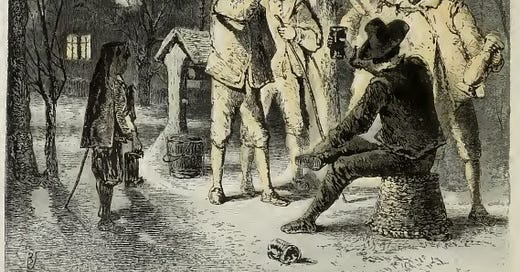



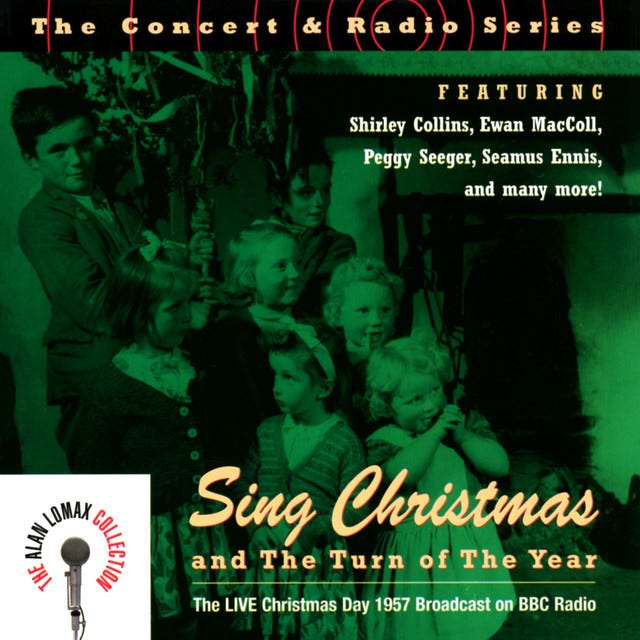
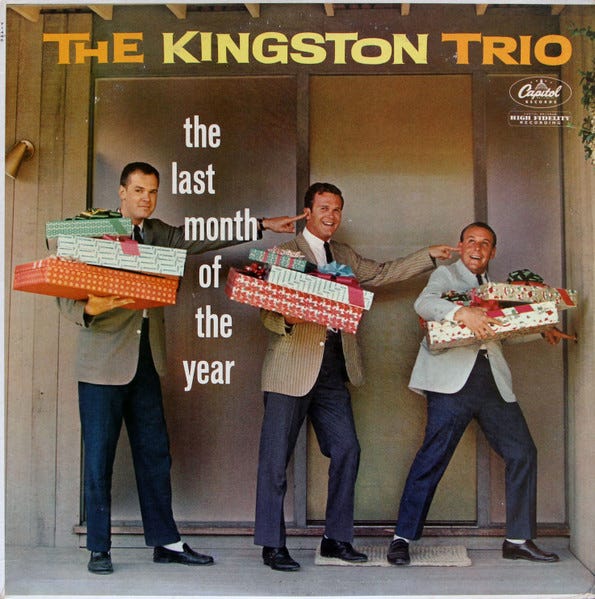


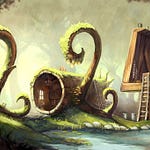


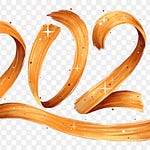

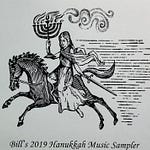
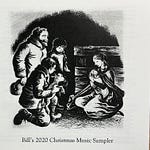

Share this post